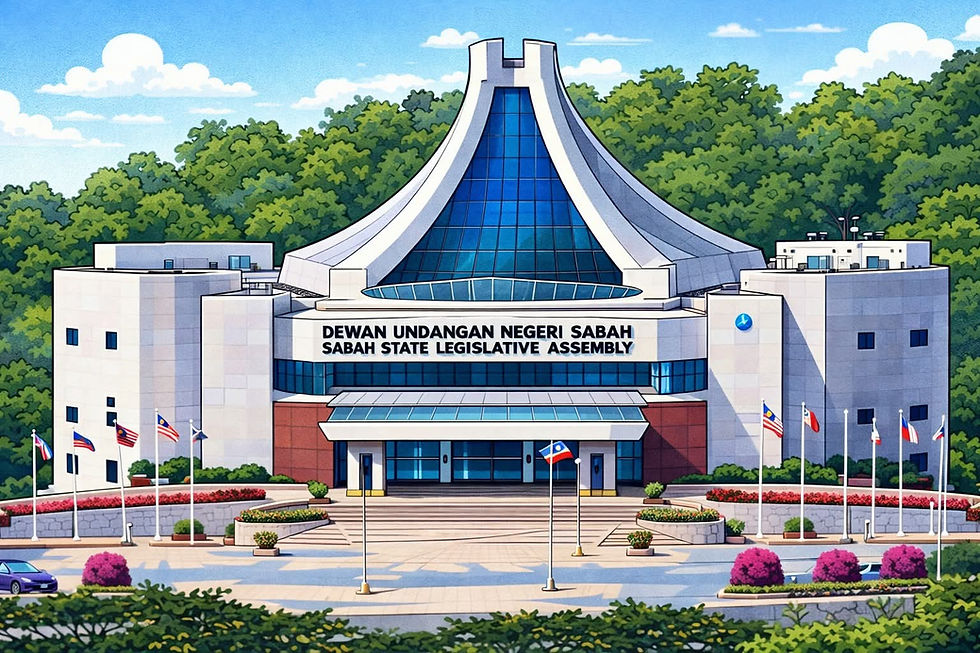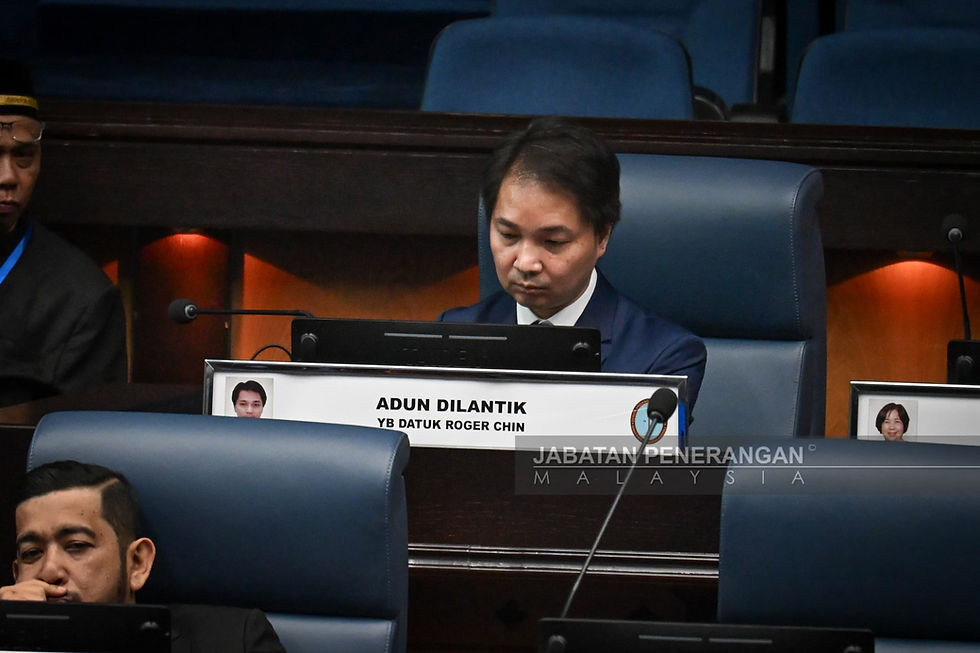MORE SIGNS OF POOR NATIONAL GOVERNANCE - RAFIDAH AZIZ
- nabalunews
- Jul 5, 2021
- 3 min read

5 July 2021
In spite of having the largest Cabinet in the world, there continue to be so much incoherence in the formulation and implementation of policies, especially during these uncertain (and scary) times, with the Covid-19 pandemic having such negative effects right across the society and economy.
Every day, we see scenes and occurrences, which reflect pain, suffering and despair as well as a lack of clarity in the Government machinery itself to handle such situations.
1) The suicides that have occurred out of despair due to the stresses of loss of jobs and income and related. Is it not for the relevant ministry to look into this apart from handing out food baskets? Longer-term solutions are needed because the impact of Covid-19 itself and the lockdowns are in itself long term.
2) Are the two ministers of education looking at the way education is now being delivered? And to plan to revamp existing structures, formats of delivery, and ensure that there is that " catching up of/making up for the undoubted losses of tutelage, and effectiveness in the Virtual Delivery of Education during the Covid-19 lockdowns. I am told that at the primary school levels, in some schools, the children just "register " their presence, online, and then can opt-out of the class to give way to others to "register" so the children only participate for a fraction of the tuition time! Am talking about resetting the delivery of education. Please remember, we cannot afford to have "lost generations" due to the inability to respond adequately and effectively to the "new normal" situation.
3) Of late, there are reports of farmers not being able to harvest their produce because of the lockdown and the crops have to be destroyed! What is the Ministry of Agriculture doing Is there no monitoring of the agriculture community such as in the traditional high-land vegetable farming areas? Yes, there were Covid infections on one farm. The ministry should monitor this sector, working with the state governments authorities. FAMA could have stepped in to buy or arrange for the offtakes of whatever farm produce there are and ensure that they get to retailers and grocery stores, and can even arrange to be donated to the needy. There are people who need to eat. It is terrible to see such farm produce go to waste when there are people putting out white flags because they have no food!
4) Also the enforcers of lockdowns, and of some rules prefer the "scorched earth" approach of enforcement, eg. tear down illegally set up stalls, lay to waste drinks and whatever put up for sale... Why? Why not advise them to go to designated places, help them with the shift, give them free permits to operate... Empathy is vital. The stallholders have invested more and effort in putting those stalls, and preparing the food etc.
5) Then there are the scenes of enforcement teams destroying valuable fruits and petai trees because they were planted on illegal land. Why destroy? Why not allow the farmers to collect the fruits, vegetables and petai so that they can earn money from their efforts, then solve the land status and consider giving them TOL status. There must surely be similar situations in other states. Again, need to have a positive approach rather than destroying valuable food resources. Again, FAMA could have come in to assist with the sale or distribution of the produce. Of course, if it is drugs, ketom etc., they should be destroyed! Every ministry and department must engage with their own respective stakeholders all the time especially when a new policy measure is planned to be introduced.
I am sure by now, ministers know which groups are their respective stakeholders, and I do not mean "voters", "party members" and "supporters". They must be proactive at the grassroots level.
It is not just " kita jaga kita", it is "kita jaga semua" because the "kita" might be simply interpreted "us", "our people", "orang kita". No, it's the people at large in our society.
Tan Sri Rafidah Aziz
Former Federal Minister


















Comments